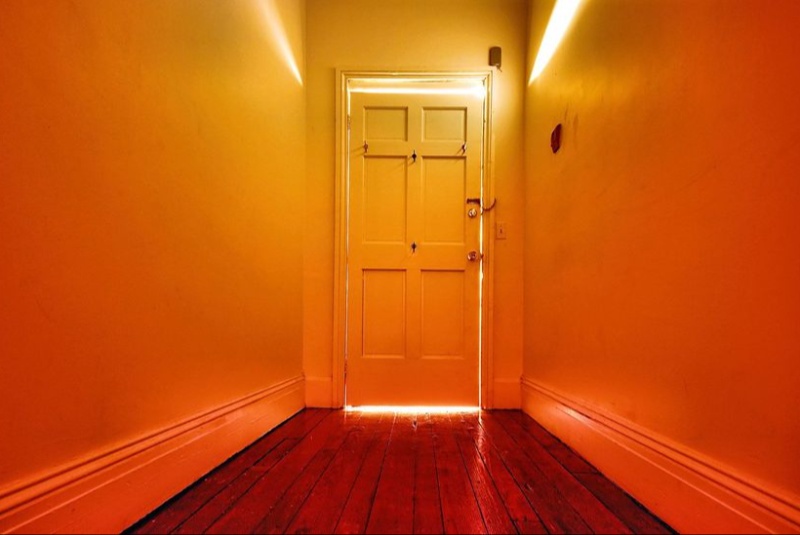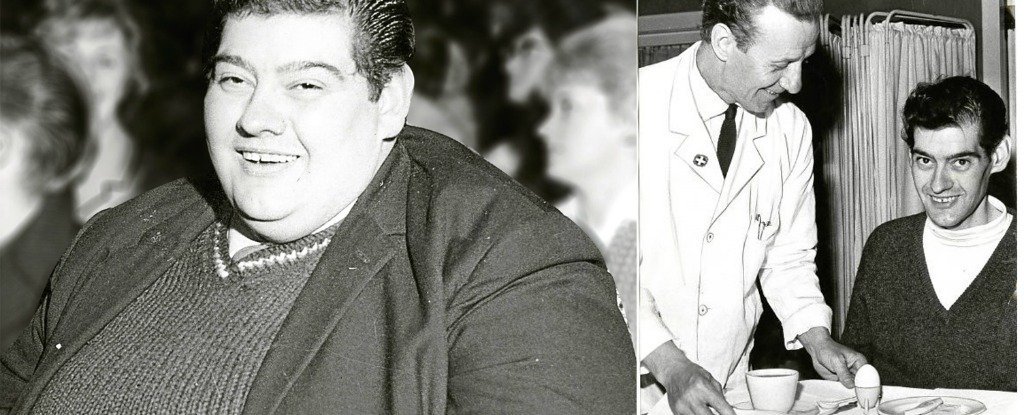It's a ubiquitous experience that has puzzled and amused humans for ages. You're navigating your home or office with a sense of purpose, driven by a clear objective. But the moment you pass through a doorway and enter another room, your mission seems to vanish into thin air. This curious occurrence, colloquially known as the "Doorway Effect," is more than an amusing anecdote—it's a fascinating glimpse into the sophisticated workings of the human brain and our cognitive processes.
The Doorway Effect, while seemingly trivial, illuminates the complex strategies our brain employs to organize and manage the wealth of information we encounter in our daily lives. It's not merely a lapse in memory but a reflection of how our brains categorize and prioritize the world around us.
To delve deeper into this phenomenon, let's consider a typical day. Imagine you're multitasking at home—juggling work calls, domestic chores, and personal projects. Each task requires a specific set of cognitive resources, from recalling information to problem-solving. As you decide to move from one room to another, perhaps to grab a file or a cup of coffee, you are in the midst of a cognitive shift. The act of walking through a doorway is a physical manifestation of this transition, and here lies the root of the Doorway Effect.

Our brains have evolved to process and filter information efficiently. In the context of memory, this efficiency is evident in how information is stored and retrieved. Sensory memory, short-term (or working) memory, and long-term memory work in tandem to help us navigate our world. Sensory memory acts as the first filter, capturing fleeting impressions of our surroundings. Short-term memory is more selective, allowing us to focus on immediate tasks and thoughts. Long-term memory serves as our vast repository of knowledge and experiences.
When we traverse a doorway, it's as if we're stepping into a different cognitive zone. The mental list of things to do in the previous room is no longer as pertinent, prompting our brain to reevaluate what information needs to be at the forefront. This reevaluation is a complex cognitive feat, demonstrating the brain's capacity for adaptability and prioritization.
However, the Doorway Effect is not indiscriminate. It often depends on the cognitive load we are carrying. If our minds are heavily burdened with thoughts or emotional stress, the act of passing through a doorway might trigger a more pronounced memory lapse. This is because our cognitive system has limited resources, and under strain, it may not preserve all intentions with equal fidelity.
On the flip side, if we are deeply focused on a task, maintaining a strong mental image or repeating our objective out loud, we may effectively shield our intention from the Doorway Effect. This suggests that with conscious effort, we can influence how our brain manages transitions from one space to another.
The Doorway Effect also intersects with spatial memory, which involves our brain's ability to link locations with experiences and tasks. As we move through different environments, we are not just physically navigating space; we are also updating a mental map. The physical act of moving through a doorway might signal the brain to revise this mental map, which can momentarily overshadow our immediate intentions.
Let's consider the evolutionary roots of this phenomenon. For our ancestors, transitioning from one environment to another—such as moving from the open plains into a dense forest—required a swift cognitive shift to adapt to new risks and opportunities. This evolutionary perspective suggests that the Doorway Effect could be a remnant of a survival mechanism, enabling quick mental adjustments to changing contexts.
In the modern world, the implications of the Doorway Effect extend beyond a mere momentary pause. It can disrupt the flow of work and productivity, causing frustration. However, recognizing the Doorway Effect for what it is—a cognitive adaptation—allows us to develop strategies to mitigate its impact.
For example, simply being aware that entering a new room might disrupt our train of thought can prompt us to hold our intentions more firmly. Some people might verbalize their goals before passing through a doorway or visualize the actions they intend to perform in the next room. Physical gestures, such as pointing to the object of your intent or miming the action you plan to take, can also serve as robust cues to reinforce your memory.
The design of our living and working spaces can also play a role in managing the Doorway Effect. Open-plan environments, which have become increasingly popular, may inadvertently reduce the frequency of these cognitive resets by eliminating physical thresholds. Moreover, the organization of our spaces can be optimized to support memory. Keeping items that are frequently used together in close proximity or creating designated areas for specific tasks can minimize the cognitive load as we move from one activity to another.
But the Doorway Effect is not just about memory; it's also about attention. The act of passing through a doorway signifies a shift not only in environment but also in focus. It prompts the brain to evaluate what deserves attention at that moment, based on the new context. This constant juggling act between attention and memory underscores the incredible adaptability of our cognitive system.
This adaptability is central to human cognition. Our brains are not rigid but rather dynamic, constantly adjusting and optimizing our mental resources to suit the task at hand. This dynamic nature is crucial for our ability to cope with an ever-changing world, full of complex and unpredictable stimuli.
The Doorway Effect is more than just a quirk of human memory—it's a reflection of the brain's sophisticated mechanism for navigating our environment, managing resources, and ensuring our survival. While it can be a source of minor annoyance, it is also a testament to the remarkable capabilities of our cognitive architecture.
As we continue to unravel the mysteries of the human brain, phenomena like the Doorway Effect offer valuable insights into the intricate processes that underpin our everyday experiences. The next time you experience a lapse in memory upon entering a room, take a moment to appreciate the intricate dance of cognition that's occurring within your brain. With a bit of mindfulness and strategic thinking, you can harness this phenomenon, turning a seemingly frustrating experience into an opportunity to sharpen your memory and focus, and ultimately, enhance the quality of your everyday life.




